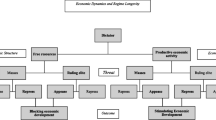Abstract
In this comment, I highlight similarities between Russia’s contemporary political system and other post-Cold War dictatorships. Most modern dictatorships hold semi-competitive elections. That is, regime officials face competition in elections, but playing fields are tilted so as to leave little suspense about who will win. I suggest that semi-competitive elections and the encouragement of litigation by citizens against local and regional officials, as described by Thornhill and Smirnova (Accepted/In press), have similar functions from the dictator’s point of view. They help the ruling elite with monitoring and controlling local officials whose behavior might otherwise alienate citizens enough to threaten the dictatorial elite with overthrow. Thus the real benefits citizens receive from the increased use of the courts to resolve disputes and electoral competition among politicians are counterbalanced by the contribution these institutions make to the prolongation of dictatorship.
Similar content being viewed by others
Notes
Calculated from data in the Authoritarian Regimes Dataset, http://sites.psu.edu/dictators/. This kind of simple, dichotomous definition of regime type is also used in the Cheibub et al. (2010) data set. For some purposes, a scholar might want to use a more incremental measurement of dictatorship, but a dichotomous measure is useful for setting a baseline against which to compare Russia.
A part of the answer is that developed democracies now provide more aid to countries that hold elections. Before the end of the Cold War, dictatorships that held uncontested election rituals received more aid per capita than those that held no elections or those with semi-competitive ones. Post-Cold War, however, those that hold semi-competitive elections receive more aid than other dictatorships (Geddes et al. 2018).
Note the number of analyses of China’s ruling party’s use of citizen petitions and internet freedom to complain about officials as a means of monitoring local officials (e.g., Paik 2009; Lorentzen 2014). China is one of the few contemporary party-led dictatorships that hold no direct elections above the village level.
Some dictatorships only encourage high turnout among ethnic or class groups likely to vote for them.
McCubbins and Schwartz (1984) coined the term “fire alarm” for the use of complaints or appeals to alert principals to the misbehavior of their bureaucratic agents in situations in which continuous monitoring would be costly.
References
Blaydes, L. (2011). Elections and distributive politics in Mubarak’s Egypt. New York: Cambridge University Press.
Cheibub, J. A., Gandhi, J., & Vreeland, J. R. (2010). Democracy and dictatorship revisited. Public Choice, 143(1–2), 67–101.
Gandhi, J., & Lust-Okar, E. (2009). Elections under authoritarianism. Annual Review of Political Science, 12(1), 403–422.
Geddes, B., Wright, J., & Frantz, E. (2018). How dictatorships work: Power, personalization, and collapse. New York: Cambridge University Press.
Grieder, P. (2012). The German Democratic Republic. Studies in European history series. New York: Palgrave Macmillan.
Levitsky, S., & Way, L. (2010). Competitive authoritarianism: Hybrid regimes after the cold war. Cambridge: Cambridge University Press.
Lorentzen, P. (2014). China’s strategic censorship. American Journal of Political Science, 58(2), 402–414.
McCubbins, M., & Schwartz, T. (1984). Congressional oversight overlooked: Police patrols versus fire alarms. American Journal of Political Science, 28(1), 165–179.
Paik, W. Y. (2009). Political participation, Clientelism, and state-society relations in contemporary China. Ph.D. dissertation, University of California, Los Angeles.
Rosberg, J. (1995). Roads to the rule of law: The emergence of an independent judiciary in contemporary Egypt. Ph.D. dissertation, MIT.
Svolik, M. (2012). The politics of authoritarian rule. New York: Cambridge University Press.
Thornhill, C., & Smirnova, M. (Accepted/In press). Litigation and Political Transformation: The Case of Russia. Theory and Society.
Wilson, A. (2011). Belarus: The last European dictatorship. New Haven: Yale University Press.
Wintrobe, R. (1998). The political economy of dictatorship. Cambridge: Cambridge University Press.
Author information
Authors and Affiliations
Corresponding author
Rights and permissions
About this article
Cite this article
Geddes, B. Why dictators hold semi-competitive elections and encourage the use of semi-independent courts: a comment on Thornhill and Smirnova’s “litigation and political transformation”. Theor Soc 47, 595–601 (2018). https://doi.org/10.1007/s11186-018-9328-4
Published:
Issue Date:
DOI: https://doi.org/10.1007/s11186-018-9328-4




